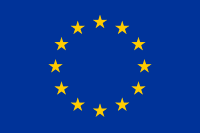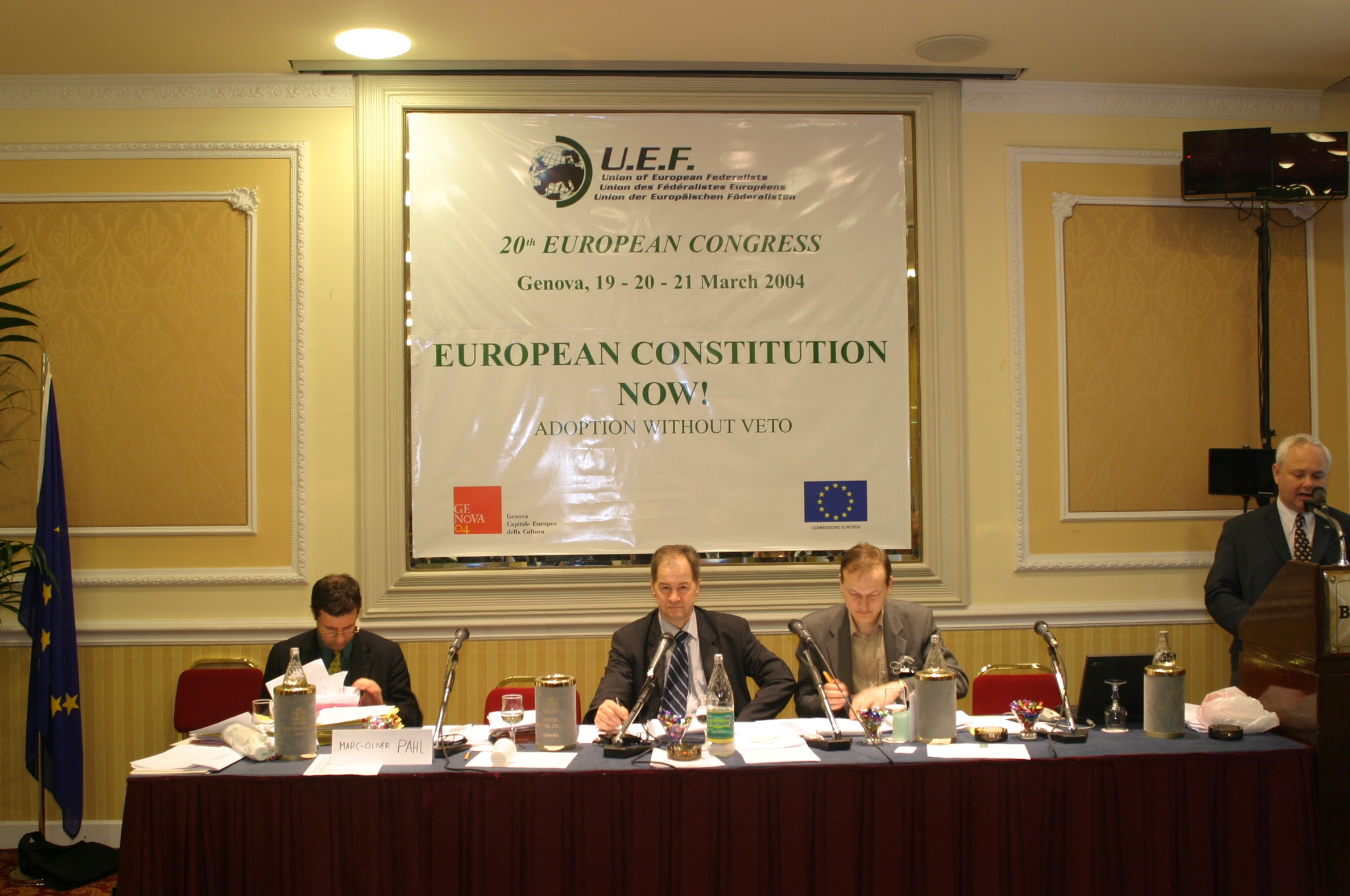Campaign for a European federal Constitution
 |

|
| Name: | Campaign for a European Federal Constitution |
| International Organization: | European Union |
| Active: | No |
| From: To: | 1997 - 2006 |
| Promoters: | Union of European Federalists |
| Supporters: | Network of parliamentarians, non-governmental organizations, local authorities. |
| Aim: | A European Federal Constitution. |
| Focus: |
History
Beginning with the Union of European Federalists (UEF) Congress of Vienna from April 18th to 20th 1997, the Federal European Constitution and the European Constituent, which have always been the guiding lights of the federal struggle, became the subjects of a specific campaign which constitutes the thread linking the actions carried out in this phase. A
At the base of this choice is the conviction that the European Union, due to the level of integration achieved and the problems which emerged from the post-bipolar world, finds itself facing existential challenges. The construction of a European federation, indicated in the Schuman Declaration, and therefore the activation of a democratic constituent procedure, are the essential conditions for avoiding a slide towards a divided and impotent Europe. The existential challenges are fundamentally: the urgent need to integrate monetary union with supranational social and economic government; enlargement, which is destined to stall and ultimately fail without an intensification of activities aimed at creating effective solidarity between the more and less advanced countries; the necessity for the EU to be able to act effectively on an international level (which implies complete federalisation of security, defence and foreign policies) in order to make a significant contribution to the creation of a fairer and more peaceful world.
On the basis of this perception, the Campaign for the Federal European Constitution enjoyed a moment of particular strength with the demonstration of December 7th in Nice (in conjunction with the European Council) in which 10,000 people, including hundreds of local administrators, participated.

The governments responded to the requests of the federalists and of the European Parliament by summoning a European Convention, chaired by Giscard d’Estaing. In this way, certain aspects of the democratic constituent model were acknowledged: the participation of both national and European members of parliament (already tested with the formulation of the Charter of Fundamental Rights passed in Nice); the transparency of meetings; consideration of the views of civil society. However, the principle of unanimous final decision making on the part of the governments and of unanimous ratification was maintained. The federalists made every effort to favour the approval of an as advanced as possible constitution project and deemed the final proposal to be unsatisfactory, but one which nevertheless contained important steps forward towards federalism and democratic participation, and therefore a milestone from which to immediately move forward. They therefore
expressed themselves strongly in favour of its ratification, although this was prevented by the negative result of referendums in France and the Netherlands, even if ratification was obtained from a majority of member states and a majority of the population of the EU.
Campaign's objectives
A European Federation must be based on a Constitution outlining its main objectives, institutional arrangements and mechanisms as well as the fundamental rights of its citizens. It is the only means to provide for a federal unification of Europe and to ensure that our continent is governed on a basis of the rule of law and democracy and is able to function in an efficient and transparent manner.
 During these years more and more important voices in the European public debate, such as high-ranking politicians from a wide range of countries and political parties as well as leading academics, have supported the concept of a European Federation, recognizing that the word 'federal' does not stand for centralisation, but for democracy and efficiency.
During these years more and more important voices in the European public debate, such as high-ranking politicians from a wide range of countries and political parties as well as leading academics, have supported the concept of a European Federation, recognizing that the word 'federal' does not stand for centralisation, but for democracy and efficiency.
The main values on which the European Constitution should be based are peace, democracy, a guarantee of fundamental rights, the rule of law, accountability, freedom, subsidiarity, solidarity and sustainable development.
Furthermore, it is essential that it stipulate a clear division and hierarchy of competences between the European Union and its members. As a matter of principle, public activity shall be conducted as close as possible to the citizens. The EU has to be a union of both citizens and member states, citizens being represented in the European Parliament and member states in the Council of Ministers.
The European Federation has to be endowed with supranational institutions with limited but real sovereign powers and consisting of:
- A federal Government (the Commission)
- A European Parliament that functions as a legislative chamber
- A Federal Senate representing the member states as a second legislative chamber (the current Council of Ministers)
- A Court of Justice.
Source: Sergio Pistone, Uef newsletter – special edition – 60 years of UEF
